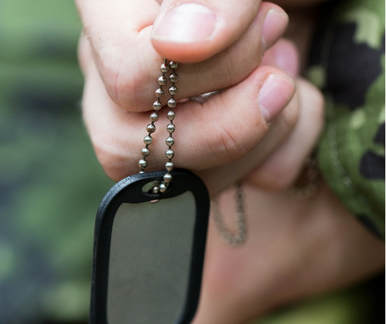 I was a special forces Paratrooper and participated in many active missions throughout Eastern Europe, The Middle East, Asia and South America and experienced firsthand the ravages and futility of war. On a mission, my team would be dropped at location with specific objectives to achieve. Failure was not an option. I experienced firsthand how life or death can come down to performing certain techniques, doing them right, the first time. On my final mission I was awarded Medalla San Lorenzo for courage and bravery under fire. Years of specific highly skilled training enabled me to survive in life threatening situations. Situational awareness and hand to hand combat skills were paramount. My experiences have helped me to understand how knowing techniques, does not prepare you to use them right, or in time, especially when you are at a disadvantage in any situation. Its only through repetition that defensive movements and decisions can be made instinctually and with most effect. This is one of the biggest reasons that I don’t teach techniques in quick money-making workshops or recommend seminars or online videos about techniques on self-defense. Some people claim that they can teach you “secret special deadly army techniques” or “prepare you for a moment in your life” with only a few hours of training. The truth is that no one can do that. Even if you can remember one or two techniques, are they going to be the right ones, practical or safe for you to use? Your health and safety, or even your life may depend of how well you do the techniques, and how calm and focused you are when performing the techniques. Like learning to swim or playing a musical instrument you need practice after learning the technique. You need to understand why, when, and where you need to perform the movement. I am sorry to say that paying money for 2 or 3 hours will not give you the tools to be successful. It may give you more confidence on the street, but it will not necessarily give you the ability to protect yourself or your family under pressure or a random attack. I don’t teach my students to rely on hope or allow them to leave our courses ill-informed on the seriousness of using suitable self-defense techniques. Motor Behaviour and Muscle Memory are things the military work very hard on. Executing defensive techniques in an unpredictable environment is something that takes some time to learn. You may only have one time in your life to use self-defense techniques and you want to be assured that you can do the right thing to survive. Learning techniques of self-defense is not only learning something that will help just you. It also gives you the ability to help keep your friends and family safe. Why would you pay for something that will not work for you? If you are looking for self-defense training, do your research and find someone that teaches techniques that will be suitable for your body weight, height, age and also the state of mind that you have. A lot of the people that we see teaching self-defense are retired from the army, security, police or have experience in some form of martial art. Some others only have good intentions and they don’t realize they gamble with people’s safety by demonstrating or teaching ineffective techniques, or not teaching them in a way that they can be performed correctly. Every day I see crime growing in New Zealand and offenders are becoming more and more aggressive. Although we always live in hope that “it will never happen to me”, unfortunately sometimes it does. Everyone needs the opportunity to be prepared for it. Please feel free to contact me any time and we can discuss further. Boris Belmar Head Instructor, Human Weapon Self Defense “Muscle memory has been used synonymously with motor learning, which is a form of procedural memory that involves consolidating a specific motor task into memory through repetition. When a movement is repeated over time, a long-term muscle memory is created for that task, eventually allowing it to be performed without conscious effort. This process decreases the need for attention and creates maximum efficiency within the motor and memory systems. Examples of muscle memory are found in many everyday activities that become automatic and improve with practice, such as riding a bicycle, typing on a keyboard, typing in a PIN, playing a musical instrument,[1] poker,[2] martial arts or even dancing. https://en.wikipedia.org/wiki/Muscle_memory Motor behavior When first learning a motor task, movement is often slow, stiff and easily disrupted without attention. With practice, execution of motor task becomes smoother, there is a decrease in limb stiffness, and muscle activity necessary to the task is performed without conscious effort.[8]” https://en.wikipedia.org/wiki/Motor_learning Comments are closed.
|
AuthorWrite something about yourself. No need to be fancy, just an overview. Archives
January 2021
Categories |
